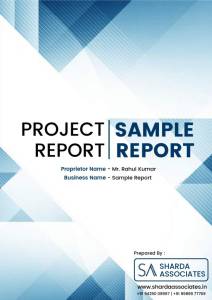Project Report For Plastic Road
Introduction
Project report for Plastic Road is as follows.
Roads built completely of plastic or of plastic composites with other materials are known as plastic roads. Plastic roads vary from conventional roads in that conventional roads are formed of asphalt concrete, which is made up of mineral aggregates and asphalt. There are no records of normal highways built entirely of plastic at this time.
Plastic composite roads, on the other hand, have been around for a while and have been shown to be superior to ordinary asphalt concrete roads in terms of wear resistance. The use of plastics in roadways also creates a new recycling alternative for post-consumer plastics. After the plastic road was put in Jamshedpur city on November 30, 2011, this technology is quickly being reproduced across Jharkhand.
As the population grows, so does the amount of solid garbage produced. The ideal option is to use garbage as a building material, which ensures proper disposal. Because this strategy is cost-effective, the practice would benefit future generations in terms of solid waste management.
Prefabricated lightweight structure Construction time is reduced and maintenance time is reduced. Longer longevity and higher quality There is little to no upkeep needed. Weather and weeds aren’t a problem since the material is almost immune to them.
The innovation is much more long-term. The Plastic Road will be made entirely of recycled plastic and will be completely reusable. It fully aligns with the Cradle to Cradle concept and circular economy ideas.
Market potential & Strategy
The worldwide plastic waste management market is predicted to reach US$ 45,642.4 Mn by 2026, growing at a CAGR of 3.9 per cent. Between 2018 and 2026, the worldwide plastic waste management market is expected to grow by US$ 11,961.3 Mn. The worldwide plastic waste management market is expected to reach 137,096.1 KT in 2018 and 174,503.3 KT in 2026, growing at a CAGR of 3.5 per cent.
Because plastic roads are a relatively new concept, building methods may differ. Roads in Jamshedpur, India, are made of a mixture of plastic and bitumen. These roadways are built of recycled plastics, and collecting and managing the plastic material is the initial phase in their construction. The plastics used to construct these roadways are mostly ordinary post-consumer goods like product packaging.
Polyethene terephthalate (PET), polyvinyl chloride (PVC), polypropylene (PP), and high and low-density polyethene are some of the most popular polymers used in packaging (HDPE and LDPE). These materials are separated from plastic garbage before being used. The material is cleaned, dried, and shredded once it has been sorted. At roughly 170°C, the shredded plastic is combined and melted. The melted plastic is then sprayed with hot bitumen. After mixing, the mixture is put out in the same way as conventional asphalt concrete is placed out.
Single-use plastics cannot be recycled and can only be used 7-8 times. Both, however, ultimately contribute to the development of net waste. Single-use plastics such as candy wrappers, food bags, waste bags, and straws, on the other hand, generate instant plastic pollution.
If the garbage piles in our dump yards and landfills are ever to be decreased, finding inventive methods to use this plastic waste is crucial.
Sample Report
Need Help?
Create 100% Bankable Project Report

